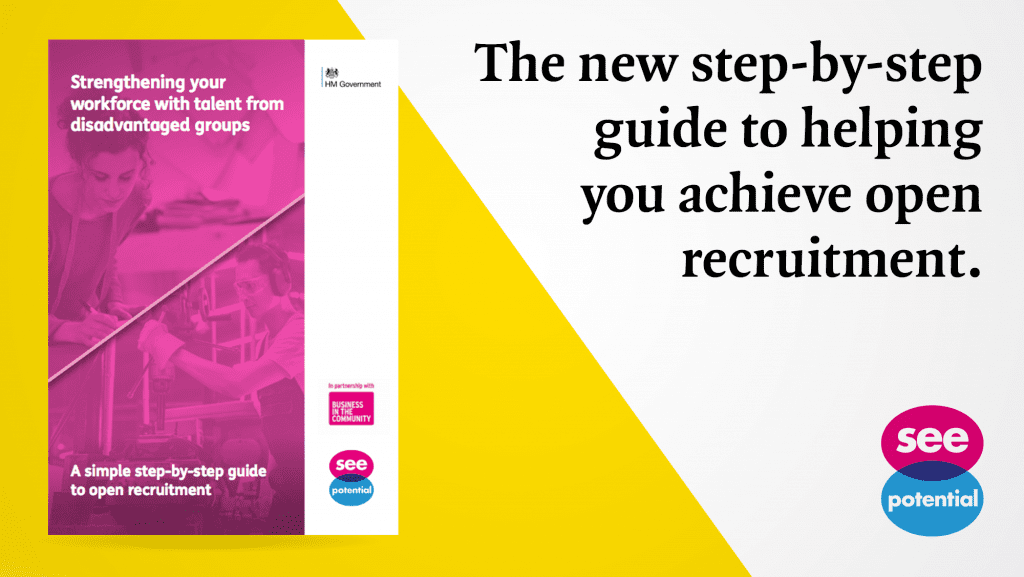Published by the Department for Work and Pensions in partnership with Business in the Community, the guide, Strengthening your workforce with talent from disadvantaged groups, comes after high demand from the business world for more help and support for employers to become inclusive.
Part of the See Potential campaign, it’s already been welcomed by the FSB Chairman Mike Cherry in the Telegraph’s Business pages last week and by the CBI’s President Paul Drechsler, CBE, in the Great Business Debate online. Many business organisations, such as the Institute of Directors, British Chambers of Commerce and the Recruitment and Employment Confederation are also behind the new toolkit.
With a particular section on people with criminal records, it includes 7 top tips for employers that have been drawn from our principles of fair chance recruitment and lists six useful organisations, including Unlock.
Responding to the launch of the guide, Christopher Stacey, Co-director of Unlock, said:
“We welcome the launch of this official open recruitment guide. It’s important that companies get a consistent message about how to be more open in their recruitment, and this guide pulls together many elements of good practice that we have embedded into our principles of fair chance recruitment. It’s a much-needed resource for companies looking at how to strengthen their workforce by making sure they’re not missing out on talent pool that exists amongst people with criminal records. From here we encourage the government to not only ramp up its work in supporting employers to be more open by providing practical hands-on support, but also by directly challenging those companies that we know have unfair and discriminatory policies and procedures.”
More information
- The official guide can be downloaded from the See Potential website.
- Unlock has a dedicated website for employers, Recruit!, which supports employers to recruit people with convictions and deal with criminal records fairly.
- We have posted about the guide on our website for employers.
- The website includes ten principles of fair chance recruitment and practical guidance for companies.
- It’s part of Unlock’s fair access to employment project.
